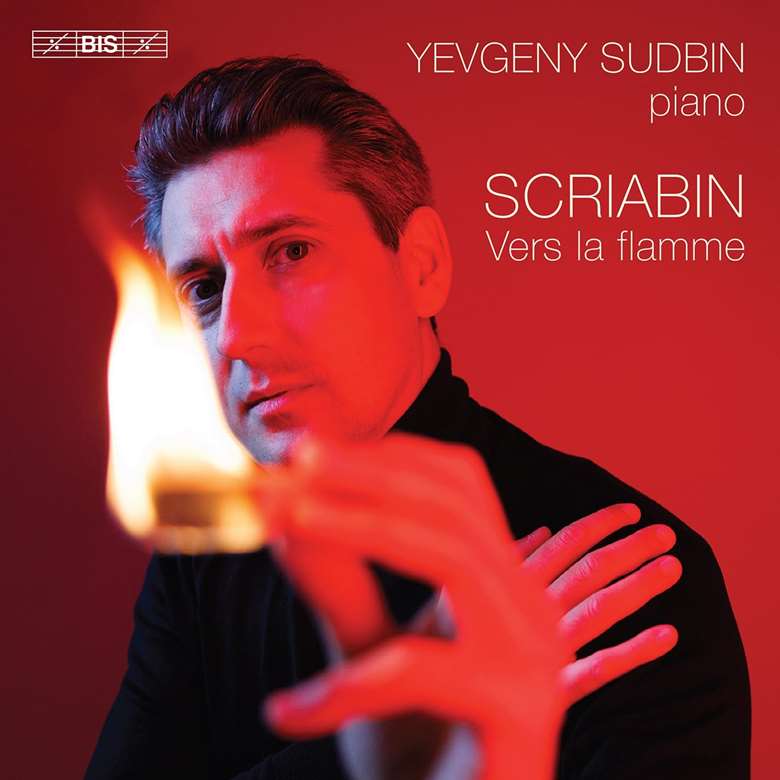Alexander Scriabin: Vers La Flamme
Farhan Malik
Friday, May 23, 2025
'Sudbin offers a rich, intimate journey through Scriabin’s piano works, playing with sensitivity, nuance and deep affection for the composer’s sound world'

In this deeply personal Scriabin recital, Yevgeny Sudbin offers a rich, intimate journey through a broad cross-section of the composer’s piano works. Throughout, Sudbin plays not only with sensitivity and nuance, but also with a clear affection for Scriabin’s unique sound world. The booklet notes, written by Sudbin himself, reinforce his deep connection to this music and reveal his highly personal interpretative perspective.
Sudbin’s selection from the Op 8 Études avoids the most commonly played pieces, opting instead for those that, while less familiar, perfectly capture Scriabin’s distinctive voice. Although No 7 feels surprisingly understated, falling short of its Presto tenebroso agitato marking, Nos 3, 4, and 11 receive solid, well-shaped readings. Both Preludes from Op 11 feature beautiful rubato and colour, though No 11 might soar even more with a lighter left hand and less saturated pedalling. All five Preludes of Op 16 are played with charm and refinement.
Sudbin writes that he loves the end of Scriabin’s middle period, where the late Romantic idiom begins to cross into darker, more complex realms, and in works from this era Sudbin truly excels. The Mazurka Op 25 No 3, played with extreme rhythmic freedom but always musically, is one of the album’s highlights, and the Poème, Op 32 No 1, capturing Scriabin’s dreamy, atmospheric world with great finesse, is another. In the Étude Op 42 No 5, Sudbin demonstrates impressive tonal control, with compelling use of dry pedalling for expressive effect. Sudbin’s treatment of the Fantasy in B minor showcases his gift for tonal colour, particularly during the work’s frequent modulations, even if some passages might leave the listener wishing for more melodic projection and greater intensity.
The opening movement of the Fourth Sonata comes off especially well, while its second movement stands out for its unusually legato and gentle character. Sudbin’s generous pedalling here helps to emphasise the music’s atmospheric qualities over its impassioned drive. His reading of the Tenth Sonata is poised and evocative, though it doesn’t quite reach the transcendent heights some pianists have found in this enigmatic work. Vers la flamme begins with beautifully controlled tension though the climax, while effective, doesn’t quite ignite with searing intensity.
In sum, Sudbin’s highly individual and poetic Scriabin showcases his artistry and deep engagement with this repertoire.
This review originally appeared in the SUMMER 2025 issue of International Piano – Subscribe Today









